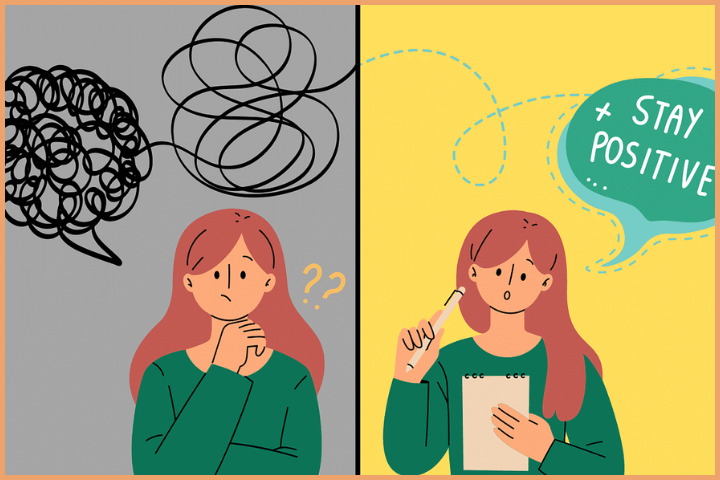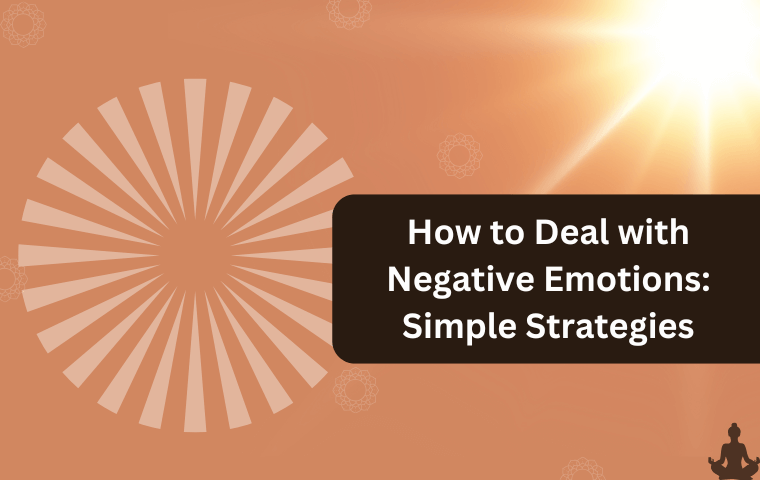Negative emotions are a natural part of life. They can arise in response to specific events or situations and often include feelings such as sadness, anger, frustration, and anxiety. Although these emotions are entirely natural, they can become concerning if they persist for an extended period or disrupt daily life. It’s important to recognize and manage these emotions in a healthy way to prevent them from affecting your overall well-being. Understanding how to deal with negative emotions effectively can help you navigate through challenging times and maintain a balanced state of mind.
The Impact of Negative Emotions

If not managed effectively, negative emotions can significantly affect both your mental and physical health. They can cloud your judgment, make you feel stuck, and reduce your ability to enjoy life. In severe cases, persistent negative emotions can cause stress-related health problems such as high blood pressure, sleep disturbances, and depression.
Why Negative Emotions Happen
Emotions are complex reactions to different situations. Negative emotions often arise from unmet needs, relationship conflicts, or stressful life events. These emotions can be triggered by things like feeling unheard, disappointed, or overwhelmed by life’s challenges.
The Danger of Dwelling on Negative Emotions
While it’s normal to experience negative feelings, dwelling on them for too long can be harmful. Ruminating or replaying negative experiences in your mind only strengthens those emotions. This constant focus can lead to a cycle of stress and frustration that makes it harder to feel positive or move forward.
Healthy Ways to Cope with Negative Emotions
There are several healthy strategies to deal with negative emotions that can help you regain emotional balance and improve your mental well-being.
1. Acknowledge Your Feelings
The initial step in handling negative emotions is to acknowledge and embrace them. It’s important not to ignore how you’re feeling. By acknowledging your emotions, you give yourself permission to process them and move forward.
2. Understand the Source
Recognizing the root cause of your negative feelings can provide you with a clearer perspective on the situation. Reflect by asking yourself questions such as: What caused this emotion? Is it related to something from the past? Is there a way to change the situation that’s causing this?
3. Reframe Your Thoughts

A helpful strategy for managing negative emotions is to reframe your thoughts. Instead of focusing on what went wrong, try to shift your thinking towards positive solutions. For example, instead of thinking, “This is too hard,” try reframing it as, “I can handle this one step at a time.”
4. Express Yourself
Confiding in a trusted person can help you release and process your emotions. Sometimes, simply expressing how you feel can help release the tension and provide clarity. Whether it’s a friend, family member, or therapist, opening up can help you feel supported and understood.
5. Practice Mindfulness
Mindfulness helps you stay present in the moment and not be overwhelmed by your emotions. Try deep breathing exercises, meditation, or simply taking a moment to focus on your surroundings. This can help you detach from overwhelming feelings and gain perspective.
6. Engage in Physical Activity

Exercise is one of the best ways to deal with negative emotions. Physical activity helps release endorphins, the brain’s natural feel-good chemicals, which can improve your mood. Whether it’s going for a walk, a run, or practicing yoga, physical movement can improve your mood and reduce stress.
7. Take Time for Yourself
Sometimes, you need to step back and give yourself a break. Take part in enjoyable or relaxing activities, such as reading, listening to music, or immersing yourself in nature. Taking care of yourself allows you to recharge and process your emotions in a healthy way.
Letting Go of the Past
Holding onto past negative emotions can prevent you from fully enjoying the present. It’s important to learn how to let go of past hurts and disappointments. This doesn’t mean forgetting but rather accepting that some things are out of your control and moving forward with a clearer mind.
Avoid Unhealthy Coping Mechanisms
While it might be tempting to use unhealthy coping mechanisms like overeating, drinking, or avoiding your problems, these strategies only offer temporary relief. Over time, they can make things worse and create additional challenges. Instead, focus on healthier ways to manage your emotions, such as exercising, journaling, or talking to a friend.
Accepting Negative Emotions
Rather than trying to push away negative emotions, accept that they are a natural part of life. It’s okay to feel sad, angry, or frustrated from time to time. What matters is how you choose to deal with these feelings. Embracing your emotions without judgment enables you to process them more efficiently.
Building Emotional Resilience
Emotional resilience is the strength to overcome and recover from tough emotions. By practicing healthy coping strategies and learning to accept and manage your emotions, you can build resilience over time. This will help you better navigate future challenges and feel more in control of your emotional well-being.
Conclusion
Negative emotions are a natural part of life, but they don’t have to control you. Understanding the origin of these emotions and mastering healthy coping strategies can help lessen their influence on your life. Remember that it’s okay to feel bad sometimes, but it’s important to take steps to move forward and not let those emotions hold you back.

